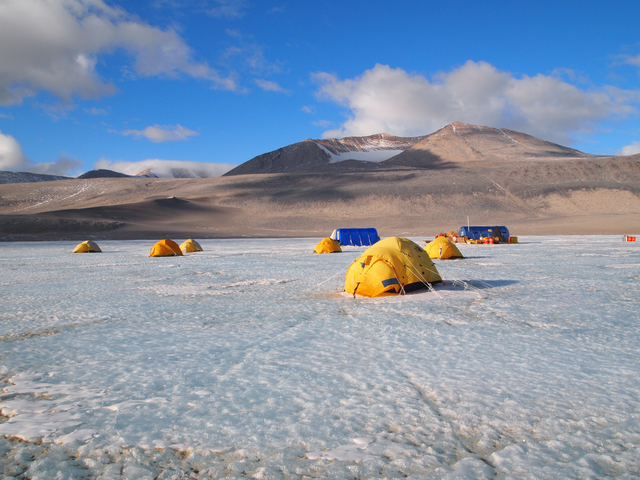We're open daily! View holiday hours
Science News
Antarctic Lake Life
November 28, 2012

Think you have it tough in this winter environment? Think again, buddy.
What if you lived in a saltwater lake that was six times saltier than the ocean, and the water was buried under nearly 20 meters (65 feet) of ice? The temperature is a brisk -13°C and oh yeah, we forgot to mention that the lake lacks oxygen and contains high levels of organic carbon.
Sounds pleasant, right? You’re probably thinking nothing can live there. Wrong.
Lake Vida in Antarctica isn’t exactly teeming with life, but life does exist in its harsh environment. Diverse life, in fact. At least eight new species of bacteria call Lake Vida home according to a new study in the Proceedings of the National Academy of Sciences.
Researchers from the University of Illinois and the Desert Research Institute took samples from the lake in 2005 and 2010, using stringent protocols to avoid contaminating the pristine ecosystem. Scientists estimate that this lake has been isolated from outside influences (including the Sun’s energy!) for almost 3,000 years.
“This study provides a window into one of the most unique ecosystems on Earth,” says lead author Alison Murray. “[It] expands our understanding of the types of life that can survive in these isolated, cryoecosystems and how different strategies may be used to exist in such challenging environments.”
Strategies like food-supply. The researchers have a theory: “Geochemical analyses suggest that chemical reactions between the brine and the underlying sediment generate nitrous oxide and molecular hydrogen," says co-author Fabien Kenig. “The hydrogen may provide some of the energy needed to support microbes.”
“If that's the case,” says Murray, “This gives us an entirely new framework for thinking of how life can be supported in cryoecosystems on Earth and in other icy worlds of the Universe.” Think Mars or Europa, says New Scientist.
And also think Vostok and Ellsworth—two more Antarctic lakes that have been isolated millions of years longer than Vida. Scientists are studying those lakes this Antarctic summer. Perhaps they will find life in these harsh conditions, as well?
Image: Peter Glenday, University of Illinois